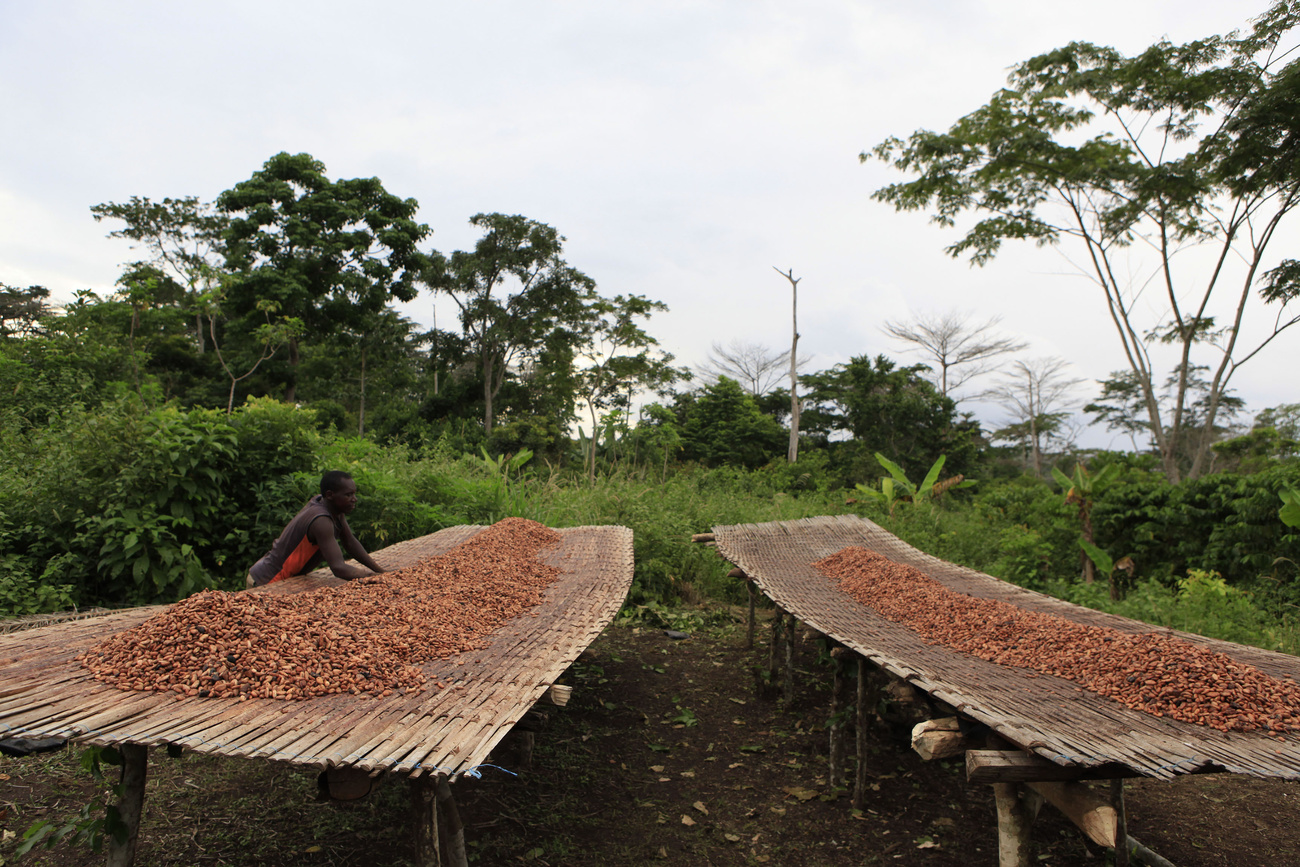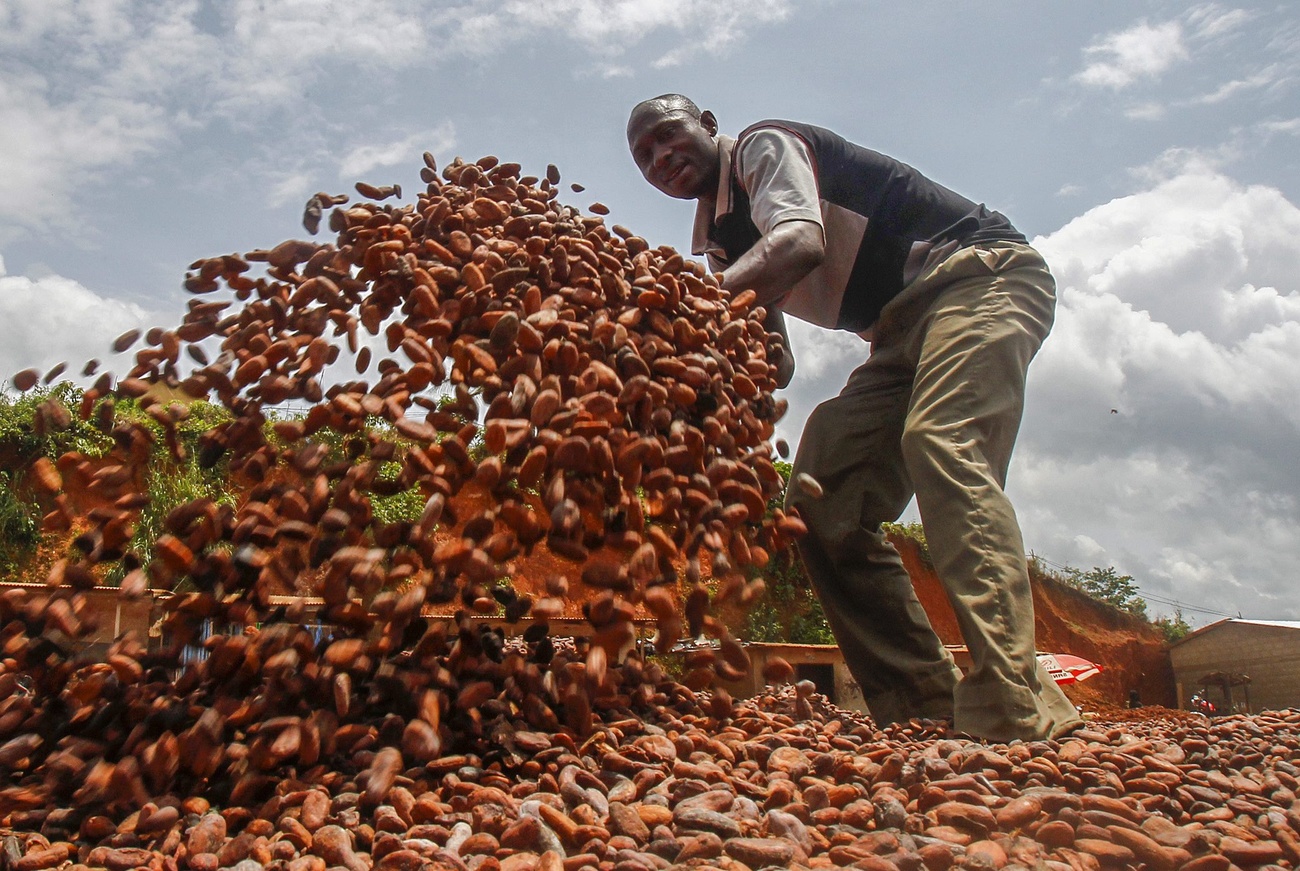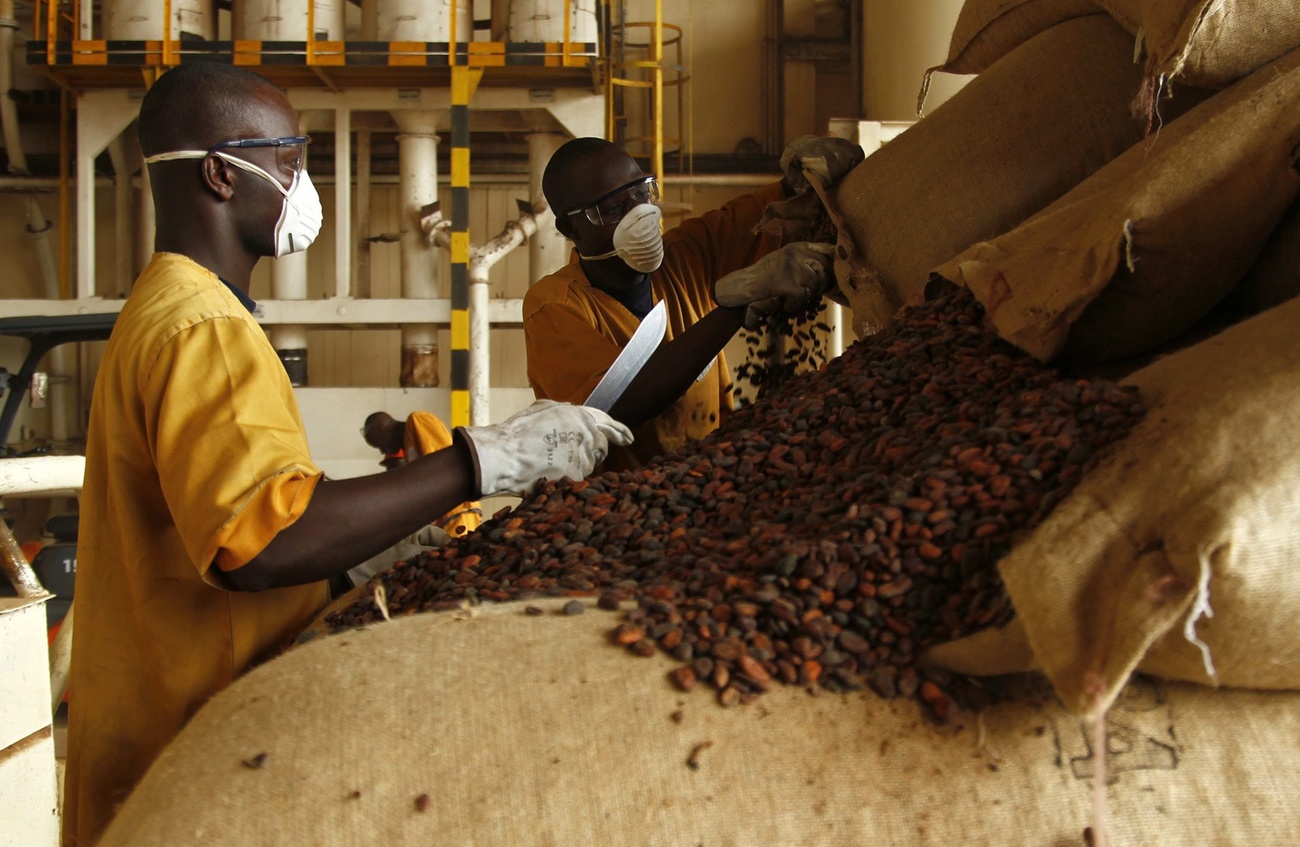Nestlé will pay African cocoa farmers to keep children in schools

Around 10,000 cocoa households in Ivory Coast could earn up to CHF500 ($536) a year if they keep their children in school, improve farm productivity, diversify income and protect the environment.
On Thursday, the Swiss multinational company Nestlé announced that it will roll out its “income accelerator programme” to cover 10,000 families in the West African country. The decision was made after positive results of a 2020 pilot programme tested on 1,000 cocoa farmers.
Farmers stand to gain extra cash if they follow a set of guidelines set down by Nestlé, the company said during an online meeting. These include refraining from child labour by enrolling all children between ages six and 16 in school and also by increasing the productivity of their cocoa farm through best practices like pruning. Environmental activities such as planting shade trees also qualify for payment, as does reducing dependence on cocoa and its fluctuating global price by diversifying income sources.
By following best practices, cocoa growing families can earn an extra payment of up to CHF500 a year for the first two years of the programme that will drop to CHF250 thereafter. The goal of the higher initial payment is to attract initial participation. The payments will be divided between farmer and spouse and the cash will be sent via mobile transfer. Nestlé expects to extend the direct payment scheme to Ghana in 2024 and eventually to all its 160,000 cocoa farmers by 2030.
Chocolate consumers will also be able to participate as Nestlé plans to introduce a new range of products sourced from cocoa grown under this scheme. The first opportunity will be a selection of Kit Kat products expected to hit the supermarket shelves worldwide in 2023.
Better collaboration necessary
Nestlé’s CEO Mark Schneider said the goal was to simultaneously tackle the problems of child labour, gender inequality and living income gap. “We know the path to a living income for cocoa household will be long and winding,” he said during the call. .
The prime minister of Ivory Coast Patrick Achi, who also addressed the online gathering, said that his country’s cocoa farmers had a right to a decent and dignified life.
“In 40 years the price of cocoa has halved. In this situation the plight of the planters has become a major problem,” he said.
Achi said that Nestlé’s project will help Ivory Coast prepare for the laws on responsible sourcing and deforestation that are being enacted in the West such as the European Union’s Green Deal. He called for more collaboration between private companies and the government departments that often working in silos on similar themes in different parts of the country.
“No synergy means reduced impact. We must avoid repetition, learn from pilot projects and share our experiences for a better impact,” said Achi.
Tough realities
Ivory Coast accounts for around 45% of the world’s cocoa production that brings in export revenue of $3.5 billion (CHF3.2 billion) a year. But cocoa farmers in the country make just $0.78 per day, a third less than what the organisation Fair Trade International calls a living wage – $2.51 per day.
In 2019 Ivory Coast (along with Ghana) decided to charge an extra $400 per ton of cocoa exported to places like Switzerland as a so-called Living Income Differential (LID) meant to increase the growers’ share of the profits and buffer them from volatile prices. However, falling demand due to the Covid-19 pandemic forced the cocoa board to offer quality discounts which neutralised the LID.
“The LID has had mixed results,” said prime minister Achi.
Child labour has also proved difficult to eradicate in West Africa. A 2020 report commissioned by the US Department of Labour showed that 1.56 million children were still in cocoa-related child labour in Ivory Coast and Ghana.

In compliance with the JTI standards
More: SWI swissinfo.ch certified by the Journalism Trust Initiative













You can find an overview of ongoing debates with our journalists here . Please join us!
If you want to start a conversation about a topic raised in this article or want to report factual errors, email us at english@swissinfo.ch.